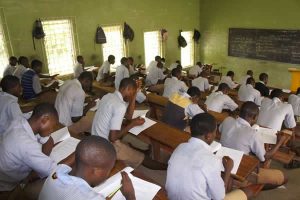
CBN, NERDC TO INCORPORATE FINANCIAL LITERACY INTO SCHOOL CURRICULUM

The Central Bank of Nigeria, in collaboration with the Nigerian Educational Research and Development Council, is poised to integrate financial literacy into the school curriculum for junior and primary schools across the country.
The Acting Head of the Consumer Protection Department at the CBN, Mr Ibrahim Yahaya, disclosed this on Thursday during the commemoration of World Savings Day at the Federal Science and Technical College in Orozo, Abuja.
Speaking to journalists, Yahaya stated, “We have had a productive collaboration with NERDC, which oversees curriculum development in Nigeria. The curriculum has been finalised and is set to be launched. Once that is completed, it will be incorporated into the school syllabus for junior and primary levels. This will cover topics on savings, investments, and other essential financial information for our population.”
He said, “We have had a very wonderful collaboration with NERDC, the owners of curriculum development in Nigeria. We have been collaborating with them for some time now. The curriculum has been developed and is waiting to be launched.
“So, once that is launched, we will include it in the school curriculum for junior and basic schools, which will encompass what children will learn in schools, along with matters related to savings, investments, and a variety of other financial information that is very important for the population, generally.”
According to Yahaya, while the formal unveiling of the curriculum is still pending, both the CBN and NERDC are working tirelessly to expedite the launch.
He described the initiative as timely, particularly in the context of World Savings Day, and emphasised the importance of instilling a culture of savings and investment from an early age.
Yahaya also stressed the importance of a savings culture in the country.
He said, “School intervention, especially at this time when we celebrate World Savings Day, is very, very crucial. Why? Because we are targeting young minds. Teaching them about the importance of savings is vital for economic development everywhere. What banks and other lending institutions give out as credit comes from our deposits, which are part of savings.”
Yahaya noted that the importance of savings and investments can never be over-emphasised.
Earlier in March 2024, the CBN said it was working to ensure that the final copy of the National Financial Literacy Curriculum is included in schools’ academic calendar by October this year.
Additionally, the latest figures from the CBN show that the total financial inclusion level in Nigeria has grown significantly from 65 per cent to 67 per cent in 2023.
This figure translates to a record growth from 68.8 million to 69.2 million individuals included.
However, the number of financially excluded people dropped from 36 per cent or 38.2 million to 32 per cent, representing 33.9 million people.
A breakdown of the figures showed that the number of banked individuals has risen from 47.7 million to 54.2 million, while another 5.3 million or 5 per cent of the total figure was captured through other formal channels, with 8.6 million (11 per cent) included in the financial service sector through informal methods.
